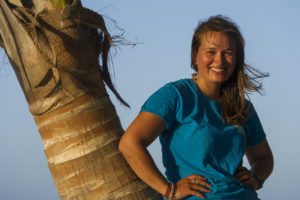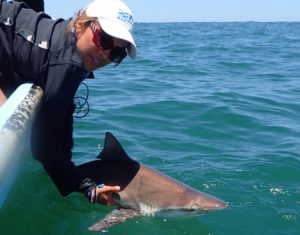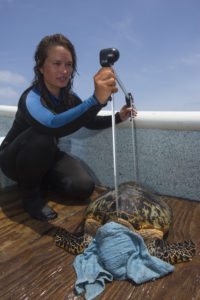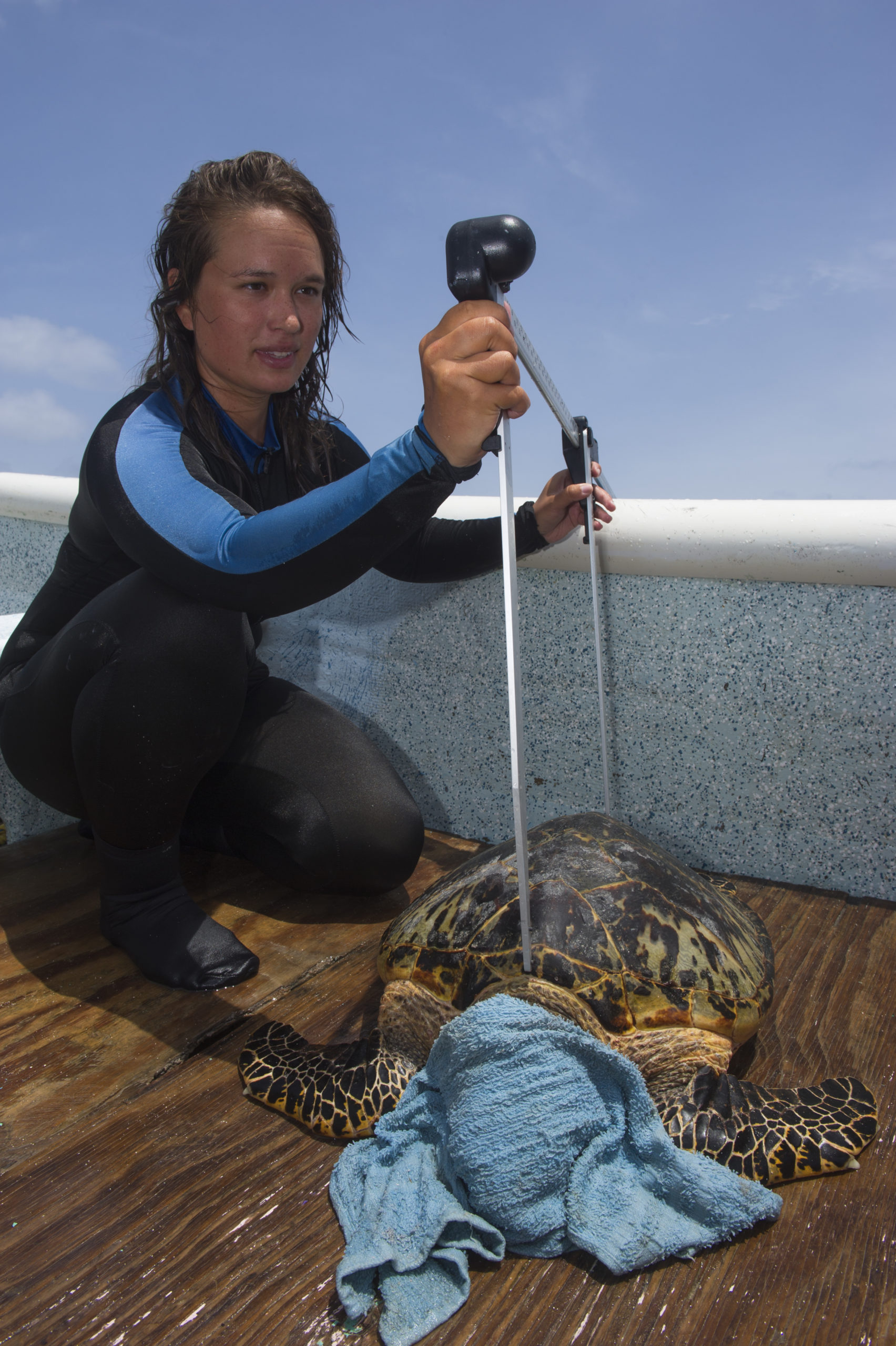Our world-leading marine research underpins a wide range of undergraduate and postgraduate programmes: Research-led teaching | Exeter Marine | University of Exeter. In this #MScGraduateInFocus series we are looking back on some of our MSc graduates who have excelled in marine conservation around the world since studying with us.
Today we meet Megan Chevis, MSc Conservation and Biodiversity graduate (2015) and now working as the National Coordinator for MarAlliance in Panama!

Hi Megan! First off, why don’t you give us a bit of background about what made you choose to study your MSc with us at the University of Exeter Cornwall Campus?
After learning about the MSc course offered at the Penryn campus and seeing the type of research being conducted by the students and staff in the Centre for Ecology and Conservation, I knew the program was perfect as a stepping stone for where I wanted to go and the type of career I wanted to pursue. It offered access to all the resources I would need as a student and a scientist, all while set in a beautiful location.
As an international student with limited knowledge of the UK, I was pleasantly surprised when I started researching Penryn and Cornwall while I was considering the MSc program. As someone who loves nature, hiking, and being in and near the sea, the Penryn campus was THE best place for me to study while also enjoying all the natural beauty that southern England had to offer. The multiple activities and events hosted by student groups helped me make the most of my time there.
You mentioned you saw the MSc as a stepping stone to your career, how did the MSc help prepare you for your career in Marine Wildlife Conservation?
There are many skills that I developed at Exeter that I currently use on a regular basis and that I know will continue to serve me in the future. Skills such as GIS mapping, data analysis using R, grant writing, public speaking, and scientific writing have been invaluable for my career so far. My time spent in the field course in Kenya strongly shaped my perception of wildlife conservation and initially taught me that wildlife conservation is all about humans. What I learned from communities and organizations in Kenya about human and wildlife conflict, natural resource use, and development are completely relevant to the work I do now concerning marine resources, artisanal fisheries, and coastal habitats in Central America.

While my work now more often involves working with humans (or at the computer!) than in the ocean, my passion for my work is renewed whenever I get to be in the field and interact with the animals that initially made me fall in love with the sea. The field of marine conservation can become quite heavy at times, and it can sometimes be difficult to know that you are actually making a difference in the right direction. One of the most instantly rewarding parts of the work I do is our environmental education program, where I talk to primary school kids about sharks and rays and sometimes take them into the field. Seeing the perceptions of kids change and hearing how many of them become inspired to be marine biologists helps make the struggles easier. To be successful in this field you must accept that, if you want to ensure a future for wildlife, you also have to ensure a future for the human populations that depend on them.
Finally, Do you have any advice for anyone thinking of applying to any of our programmes at the University of Exeter?
Do your research ahead of time to make sure the program and university are a good fit for you and your goals, but I think you will find that Exeter and its MSc program stand apart from the rest in terms of all that they offer for individuals wanting to pursue a career in marine wildlife research and conservation. Be prepared to work hard and push yourself outside of your comfort zone.
I would also advise to take advantage of the resources you have while at Exeter and gain as many varied skills and experiences as you can. The university and its staff have so much to offer. Even though you may think you know what kind of work you want to do after graduating, having a well-rounded resume and transferable skills will open you up to many more opportunities.
Thanks Megan!

If you want to find out more about any of our suite of #ExeterMarine Masters and Undergraduate courses use the links below!
- NEW: MSc in Marine Vertebrate Ecology and Conservation
- MSc in Conservation and Biodiversity
- MSc in Conservation Science and Policy
- MSc in Evolutionary and Behavioural Ecology
- MSc in Sustainable Development
- MSc in Environment and Human Health
- MSc in Renewable Energy Engineering
- BSc Marine Biology
- BSc Zoology
- BSc Environmental Science
- BSc Conservation Biology and Ecology
- BSc Evolutionary Biology
- BSc Animal Behaviour
- BEng Renewable Energy Engineering

